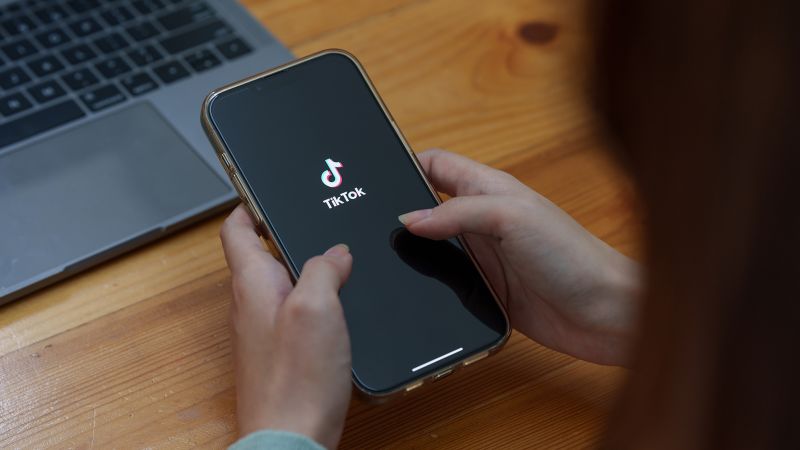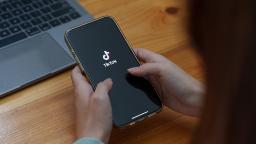

CNN
—
The new cold war is not playing out over a wall that divides a continent but in the pockets of millions of Americans.
A congressional hearing focusing on the popular TikTok video app on Thursday became the latest in a series of recent clarifying moments that laid bare not just the bipartisan hostility in Washington to Beijing’s new global heft but also the extent to which the growing superpower confrontation is beginning to be felt in multiple corners of American life.
A five-hour grilling of TikTok’s CEO Shou Chew also underscored how China is being increasingly viewed not just as a rising threat to US security and economic dominance but also as an ideological challenge – one antithetical to America’s values and way of life, much as the Soviet Union was in the last century.
The possibility that the Chinese-owned platform, which says it has 150 million US monthly users, could be used by the Chinese Communist Party to gather intelligence on millions of Americans was brought up repeatedly by lawmakers on both sides of the aisle. Members were also preoccupied with the possibility that young, developing American minds could be shaped by a torrent of Chinese-made content or information that could suppress US principles of political freedom and human rights or create confusion or false narratives about American foreign policy.
Such arguments were encapsulated by Washington state GOP Rep. Cathy McMorris Rodgers, who chairs the House Energy and Commerce Committee and set the tone for the hearing.
“We do not trust TikTok will ever embrace American values – values for freedom, human rights, and innovation,” Rodgers told Chew. “TikTok has repeatedly chosen the path for more control, more surveillance, and more manipulation.”
“Your platform should be banned.”
But Rodgers was not the only government figure who expressed deep suspicion of TikTok on Thursday. Secretary of State Antony Blinken fueled speculation that time may be running out for the app, which is beloved by millions of American teenagers but is already prohibited on federal government phones and on other official devices elsewhere in the West.
Blinken said that he believed TikTok was a national security risk and should be “ended one way or another,” while adding, “there are different ways of doing that.”
And House Speaker Kevin McCarthy backed legislation to effectively ban TikTok in the US. “I don’t know that we have to give the president the authority. I think maybe we may be able to do it ourselves and I’ll let it work in the House,” the California Republican told CNN’s Manu Raju.
The hearing was the latest in a recent sequence of events that have made the long predicted clash between the existing superpower, the United States, and the rising one, China, a tangible reality for millions of Americans.
They include the drama over a Chinese spy balloon that floated across US skies in February before being shot down by US jets. And just this week, Chinese President Xi Jinping traveled to Moscow to offer legitimacy to Russian President Vladimir Putin after he was accused of war crimes by the International Criminal Court. Xi left no doubt that his purpose is to challenge the US-led international system that has been in place since the end of World War II, saying that China was ready to “stand guard over the world order.”
Chew’s mission on Capitol Hill on Thursday was to convince lawmakers that TikTok is independent of Chinese government control and to show how the company has tried to demonstrate it is protecting the data of American users through an initiative using US servers known as Project Texas. That he failed so clearly to do so was largely because most of the lawmakers seemed to have made up their minds on the issue long ago.
Wisconsin GOP Rep. Mike Gallagher, the chair of the new House select committee on China, said on “CNN Primetime” on Thursday that the key issue was not where the data of US users was stored, arguing that the core problem was that TikTok’s Chinese parent company controlled the app’s algorithm and was susceptible to pressure from the Chinese government. “They can use this app for spreading disinformation, influencing what news Americans see, influencing future elections,” Gallagher said.
The government in Beijing did Chew no favors. Its commerce ministry said hours before the hearing that it would firmly oppose any US attempt to force TikTok’s Chinese-owned parent company, ByteDance, to sell the app to an American firm, warning that such a move would raise questions about the viability of Chinese and other foreign companies investing in the US economy. The statement only reinforced the belief of many American lawmakers that TikTok is far from independent and underscored their doubts about Chew’s claims that its data collection practices are similar to those used by many US internet firms.
Chew insisted that his company was independent and not an arm of the Chinese government or the Communist Party. But despite not producing evidence or any proof to support their claims of potential interference from Beijing, the lawmakers said they didn’t believe him.
There was a pageant of political performance in the hearing, as lawmakers from both parties relished a chance to show who could be tough on China. TikTok issued a statement bemoaning a day “dominated by political grandstanding that failed to acknowledge the real solutions already underway through Project Texas or productively address industry-wide issues of youth safety.”
The hostility of some of the lawmakers illustrated how opposition to China has become one of the dominant organizing principles of Washington politics and a rare issue that unites both parties. But the tone of some of the questions and the disrespect shown to Chew also explained why some Asian American groups are worried that fierce hostility toward Beijing in Washington could translate into more intimidation and violence against Asian Americans across the country.
The essence of Washington’s distrust over TikTok’s capacity to protect data was reflected in repeated exchanges between Chew and the House committee over the firm’s Project Texas, which, if anything, appeared to leave lawmakers more skeptical than they had been before. This is because Chew was often unable to sufficiently assure lawmakers that the Chinese government wouldn’t access its user data in the future, even though he argued it would be contained in American servers on US soil.
“I have seen no evidence that the Chinese government has access to that data; they have never asked us, we have not provided it,” Chew said at one point, causing Democratic Rep. Anna Eshoo of California to remark, “I don’t believe … that you have said or done anything to convince us.”
Democratic Sen. Mark Warner of Virginia, the chair of the Senate Intelligence Committee who has written legislation giving President Joe Biden more power to ban TikTok, explained why Washington perceives a video app as such a threat.
“One of the geniuses of TikTok is it learns from you. Every time you’re on the site, it starts to get to know you, what you like better than even what you know. Do you want all that information ultimately residing under the guise of the Communist Party of China?” Warner said on “CNN This Morning.”
“Number two, this is a powerful propaganda machine if it’s used that way. This is an incredible misinformation, disinformation machine. I’m not saying they’re doing it right now, but that potential, if President Xi in China wants to somehow invade … Taiwan, and suddenly folks not only in America but around the world are starting to see videos that reinforces that kind of message, that is a propaganda tool that makes every other possibility pale.”
The broadening concerns about China’s massive intelligence capabilities are an increasingly frequent topic in Washington – especially in relation to the spy balloon drama and TikTok, and they were also due to spill over into talks on Friday between Biden and Canadian Prime Minister Justin Trudeau in Ottawa.
“We’ve consistently seen that the Chinese government use whatever tools it can to get information, get data that is going to be advantageous to its aims around the world,” Trudeau told CNN’s Paula Newton in an exclusive interview on Thursday. “And we’ve also seen that Chinese owned or Chinese directed companies are very much answerable to the Communist Party of China.”
Trudeau’s comments underscore why TikTok’s time may be running out in the US – at least as part of a wider Chinese company. If the app was owned by a Belgian firm or one from Australia, for instance, there might still be concerns over its addictive properties and data protection, but it would not have to battle the impression it represents a dangerous window for a US adversary.
As Thursday’s hearing showed, TikTok is caught up in geopolitical forces between the US and China that are far larger than even its vast consumer base and that raise questions that are proving impossible for it to answer – at least to the satisfaction of the US Congress.
